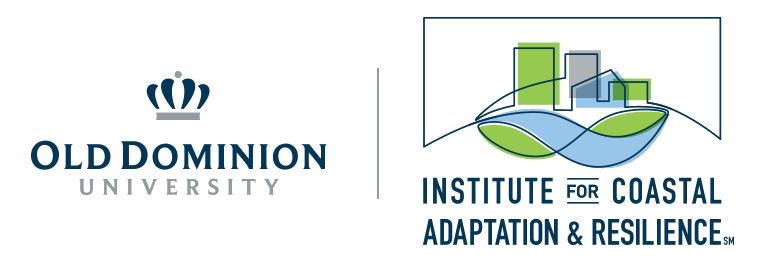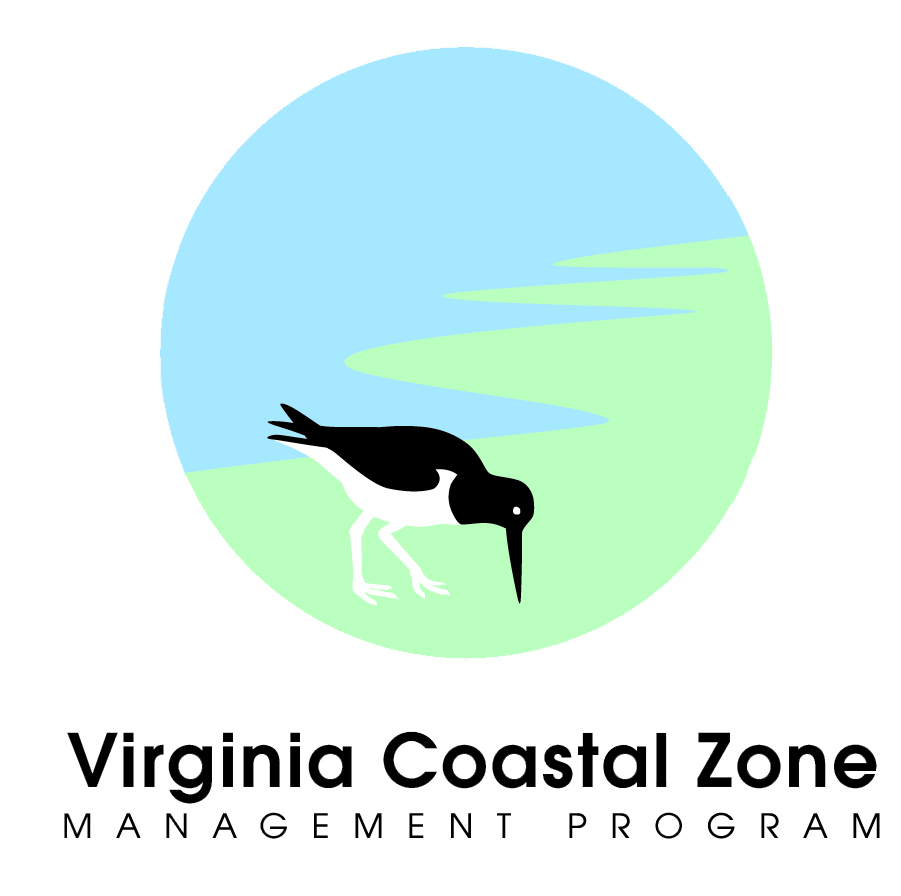Academic & Professional Publications
This article, published in Shore & Beach, describes the RAFT process for incorporating equity into planning and implementation. It includes lessons learned that can be helpful for practitioners and communities interested in planning and taking action to enhance coastal resilience in an equitable way. https://doi.org/10.34237/1009046
Tools
Click to visit the dedicated page for more information on this self-evaluation tool for use by localities or Tribes.
This exercise was designed to help communities contextualize and understand the specific impacts of hazards and identify populations vulnerable to those impacts. The worksheet, which is designed to focus on flooding, can also be adapted based on the blank template at the end to be used in assessing other hazards and their impacts. This data list was also created to provide a list of resources for vulnerability mapping and resilience planning.
These worksheets are designed to help communities plan for the range of communication required through the preparedness, response, and recovery phases of a serious public health event.
This worksheet is designed to assist communities in establishing a formal resilience committee structure by leading locality representatives through a brainstorming process to consider key questions and identify an appropriate committee framework.
This resilience self-assessment and guide is a resource for small businesses and organizations supporting businesses.
Reports
-
Policy Briefs:
These policy briefs were created by the Virginia Coastal Policy Center (VCPC) and the Virginia Institute for Marine Science (VIMS). They provide an overview of infrastructure that is vulnerable to sea level rise in Virginia's coastal regions and options for addressing that vulnerability.
To initiate a conversation, and to begin outlining a helpful way that communities might approach the difficult (and dire) topic of relocation, a Focus Group was convened at Old Dominion University. Experts from coastal communities were invited to think about how communities might conceptualize, plan, and implement the undesired and unwanted relocation of a neighborhood or community.
This report seeks to summarize the perspectives of community leaders regarding the challenges and opportunities they have experienced through their work while serving community members across the Crater Region. The report summarizes content gathered through interviews and focus groups with 43 individuals representing 38 community service organizations and institutions in the region, with a focus on those serving residents in the cities of Hopewell and Petersburg.
This report seeks to summarize perspectives of on-the-ground organizational leaders representing diverse organizations and institutions regarding the challenges and opportunities they have experienced through their work while serving community members and citizens across the Middle Peninsula Region. The report summarizes content gathered through interviews and focus groups with 65 individuals representing 60 community service organizations and institutions in the region.
This report aims to understand the ways in which social services providers serving vulnerable populations in Virginia’s Northern Neck have responded to the COVID-19 pandemic while also compiling lessons learned and strategies to increase resilience moving forward. The report summarizes content gathered through online interviews and focus groups conducted with 63 representatives from 43 social service organizations working in the region. Through this project, a regional Northern Neck Asset Map was also created that can be accessed at this link.
Framework for planning for current and future flood impacts that emphasizes four adaptation strategies: green infrastructure, gray infrastructure, planning & land use, and economic futures. Created by students in the University of Virginia School of Architecture under the direction of Professor Bev Wilson.
Evaluation of green infrastructure and opportunities to enhance water resources, cultural resources, and green spaces in the Town of Colonial Beach. This report was prepared by students in the University of Virginia’s School of Architecture with support by the Green Infrastructure Center Inc.
A report detailing the shoreline change of a beach in Colonial Beach. This report was prepared by students at Old Dominion University.
Evaluation of green infrastructure and opportunities to enhance urban forests & habitats, water, and recreation & culture in the Town of Kilmarnock. This report was prepared by students in the University of Virginia’s School of Architecture with support by the Green Infrastructure Center Inc.
This report addresses the monetary and logistical costs and benefits of maintaining, nourishing, or relocating a beach in response to coastal erosion and sea level rise.
Framework for future action in dealing with sand and dune management that outlines the authority of a local wetlands and dunes board and highlights existing state and federal programs. This report was prepared by students and staff of the Virginia Coastal Policy Center at William & Mary Law School.
Guidance and a legal framework for localities seeking to gain control from the Department of Transportation over the construction and maintenance of their roads. This report was prepared by students and staff of the Virginia Coastal Policy Center at William & Mary Law School.
This report compares various approaches to incorporating resilience into Comprehensive Plans by comparing examples from Crisfield, MD, Gloucester County, VA, Portsmouth, VA and Virginia Beach, VA. This report was prepared by students and staff of the Virginia Coastal Policy Center at William & Mary Law School.
Short summaries of different types of resilience ordinances and examples of existing resilience efforts from across Virginia.
This report highlights the benefits of living shoreline projects for providing coastal protection, discusses potential issues that may impede creating such projects, and advice on how to proceed to create a successful living shoreline. The report was prepared by Old Dominion University.
Sampling of options for engaging private actors in regional resilience efforts, including educational, monetary, and recognition incentives.
Various options presented for flood prone properties to become more resilient, including the benefits and potential drawbacks and example projects for each option. This report was prepared by students and staff of the Virginia Coastal Policy Center at William & Mary Law School.
Discussion of the SMART SCALE program and opportunities for localities to obtain funding through it for resilience projects involving roads. This report was prepared by students and staff of the Virginia Coastal Policy Center at William & Mary Law School.
Assessment of how local governments can better engage with residents in low-moderate income communities to improve their resilience to recurrent flooding and ensure that their information needs are being met. This report was prepared by Old Dominion University.
-
Products from Professor Bev Wilson's Civic Technologies class at the University of Virginia
In the fall 2023 semester, students at the University of Virginia utilized mapping and storytelling tools to develop presentations on micro-mobility, food access, equitable broadband, and oral histories in the City of Petersburg. The student presentations can be viewed here. The students' StoryMaps and final products are available below.
The Case for Micro-mobility (map)
PHOPs Food Access (map)
Equitable Broadband (map)
Civil Rights Oral Histories (site)
-
Products from Professor Karen Firehock's Green Infrastructures class at the University of Virginia
In the fall 2023 semester, students at the University of Virginia developed a comprehensive, Strategic Green Infrastructure Plan spanning Trees, Water, Parks & Recreation, and Culture & History. This report on Green Infrastructure Strategies was prepared as recommendations to the City of Petersburg from students at the University of VA. These are for consideration by the city but are not yet adopted as policies. Original land cover data used to inform the work was created pro bono by the Green Infrastructure Center Inc. under a grant from the VA Department of Forestry.
- Strategies for Conserving the Green Infrastructure of Petersburg, VA - Final Report
- Green Infrastructure Strategies for the City of Petersburg - Final Presentation
In the fall 2020 and spring 2021 semesters, students at the University of Virginia developed proposals for improving stormwater management through green infrastructure in various Northern Neck localities. Their final presentations are available below.
- Redesign of Warsaw Stormwater Park - Warsaw
- Entry Corridor Plantings for Colonial Avenue - Colonial Beach
- Colonial Beach Codes Review - Colonial Beach
- Eleanor Park - Colonial Beach
- Golf Cart Path - Colonial Beach
- Pocket Park - White Stone
- Green Infrastructures Strategies - Kilmarnock
-
Products from the Urban & Environmental Planning Graduate Capstone Class at the University of Virginia
In the Spring 2023 semester, graduate students at the University of Virginia proposed the CREATE program for the City of Petersburg. The program was envisioned to address the issues that the city currently faces relating to climate adaptation planning, land use and transportation planning, and economic development. The full report can be accessed here.
Presentations
-
RAFT Fall 2023 Alumni Workshop - Lifting Equity in Climate Change: Identifying Climate-Vulnerable People and Places in Your Communities
- The RAFT’s Fall 2023 Alumni Equity Workshop, entitled “Lifting Equity in Climate Change: Identifying Climate-Vulnerable People and Places in Your Communities” was held virtually on Thursday, November 30, 2023. The workshop was an opportunity for alumni localities from The RAFT’s pilot phase, the Eastern Shore, Northern Neck, Middle Peninsula and current localities in the Crater Region involved in the RAFT process to share their takeaways and progress on community resilience initiatives. Additionally, it also provided an opportunity for The RAFT Core Team and partners to solicit grounded input and valuable perspective on the challenges communities face regarding integrating equity into resilience planning to inform future work with Virginia localities.
- Workshop Summary
- Workshop Slides
- Workshop Recordings
-
Incorporating Resiliency in Comprehensive Planning Workshop
- Full RAFT webinar playlist - videos
- Resiliency in Comprehensive Plans - video and slide deck
Brian Swets, AICP, Planning Manager, City of Portsmouth - Resilience & Mitigation Planning on the Eastern Shore of Virginia - video and slide deck
Shannon Alexander, Director of Planning, Accomack-Northampton Planning District Commission - Resilience Planning Highlights - video and slide deck
Gray Montrose, Assistant Director, Virginia Coastal Policy Center - The NFIP's Community Rating System: Comprehensive Planning - video and slide deck
Mary-Carson Stiff, Director of Policy, Wetlands Watch - Incorporating Resilience into Planning - video - John Bateman, Regional Planner, NNPDC
- Resilience and Planning - video - Curt Smith, Deputy Director, MPPDC
-
Sample Comprehensive Plans Incorporating Resilience:
- Accomack County Comprehensive Plan - download .pdf
- Town of Chincoteague Draft Comprehensive Plan - download .pdf
- Northampton County Draft Comprehensive Plan - download .pdf
-
Recommendations for Incorporating Resilience into the Comprehensive Plan of Colonial Beach
These recommendations were presented to the Town of Colonial Beach by Virginia Coastal Policy Center students.
This overview of green infrastructure options was created by Virginia Coastal Policy Center students for the Town of White Stone.

.png)



